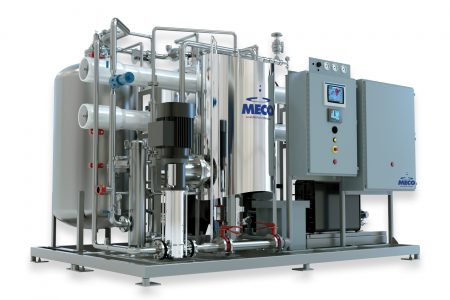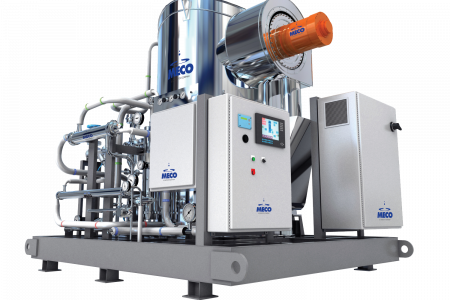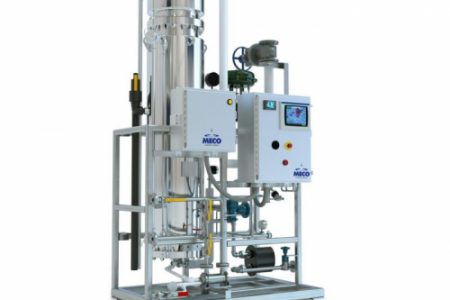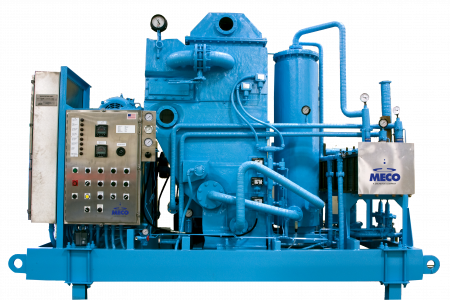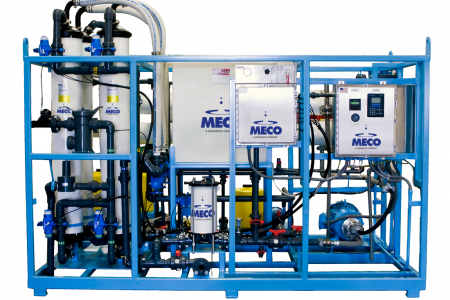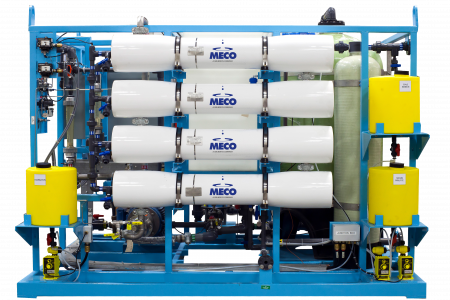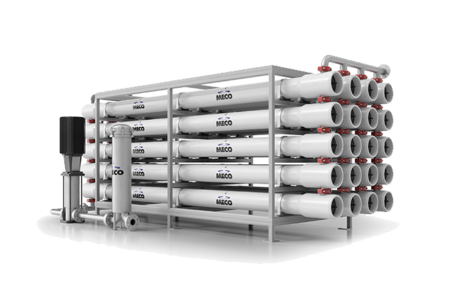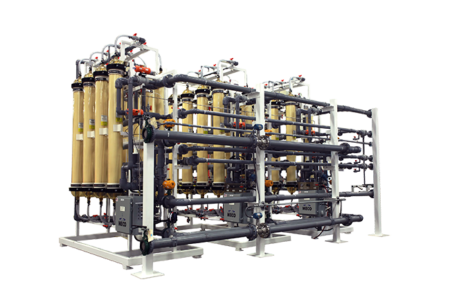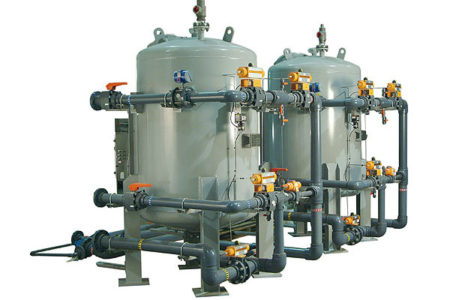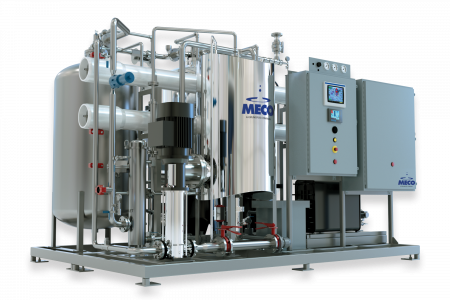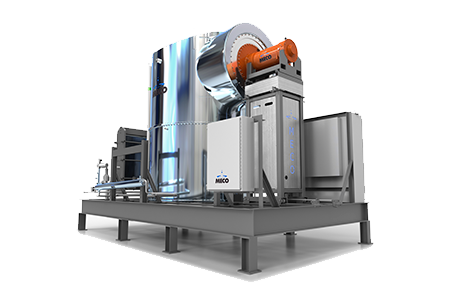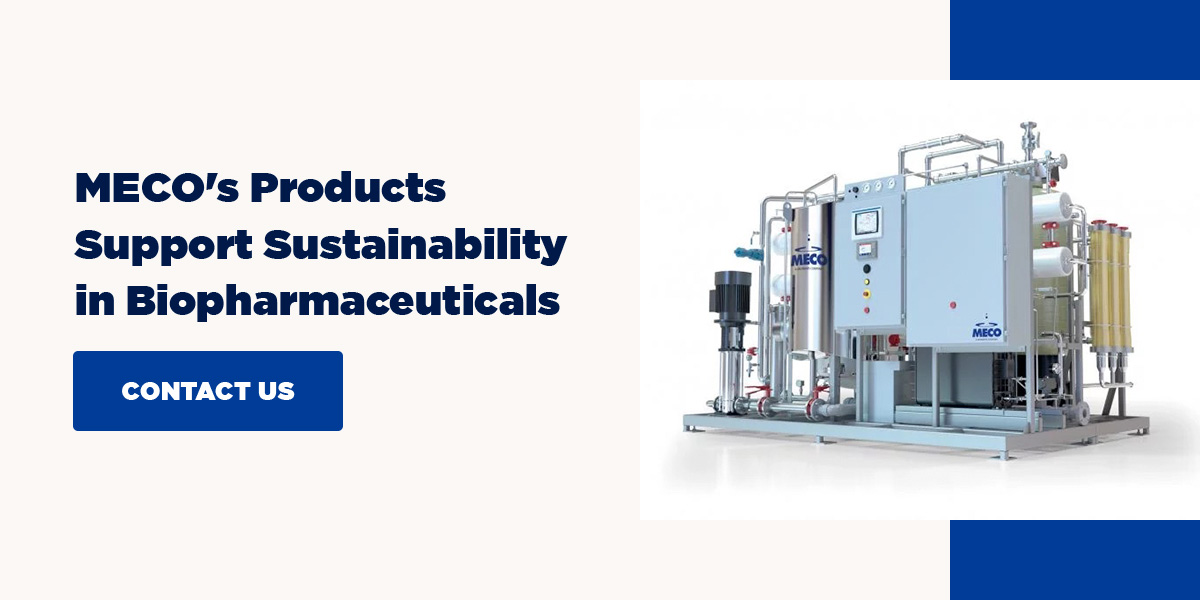The Importance of Biopharmaceutical Sustainable Water Systems

The biopharmaceutical industry has experienced incredible growth over the past few years. Modern medicine, powered by biopharma, is helping us live longer but we are also seeing a negative impact on our environment.
Water plays multiple roles in the biopharma supply chain. Biopharma, biotech companies, life sciences, R&D, cell-gene therapeutics, and universities require ultrapure water for different parts of the manufacturing process, from pure steam to clean machines to water for injection in vaccines.
MECO specializes in designing and manufacturing integrated water systems that include pretreatment, to production to storage and distribution for all pharmaceutical water types.
Biopharma’s Environmental Impact
According to EcoAct’s Climate Reporting Performance analysis for 2021, the biopharmaceutical industry’s overall commitment to pursuing environmental sustainability ranked higher than the average with a total score of 61%. The report ranks the top 20 companies across all industries using the following criteria:
- Sustainability reporting.
- Climate disclosure.
- Climate impact of business.
- Net zero commitments.
- Science-based targets.
Science-based targets clearly define the path toward achieving key sustainability goals on time. For the top companies, those goals include the following:
- Carbon neutral operations: For some companies, achieving a balance between their emissions and the carbon absorbed in carbon sinks will be an intermediate step to net zero.
- Renewable resources: Many companies aim to completely shift all their electricity generation away from fossil fuels to renewable resources, such as solar and wind power, within the next decade.
- Net-zero emissions: Top companies are aiming for net-zero carbon emissions across their internal operations by the middle of this century. Some have an even broader scope, striving for net zero across their entire value chain by the same deadline. Their success will depend heavily on their ability to transition away from fossil fuels.
In general, the biopharmaceutical industry has been making substantial progress toward these goals. Compared to the average of 71% of organizations within a sector, 75% of pharmaceutical companies have already begun developing business plans based on Climate Scenario Analyses. This is a promising sign for the future.
The following are some of the key issues the pharmaceutical industry will need to address to become more sustainable.
1. Carbon Emissions
Companies across all industries must manage three categories of emissions:
- Scope 1: These are emissions produced directly from a company’s normal operations.
- Scope 2: These are emissions a company produces indirectly. For example, emissions coming from a pharmaceutical company’s electrical provider are Scope 2 emissions.
- Scope 3: These are emissions from any parties associated with the pharmaceutical company. Scope 3 emissions account for the majority of the pharmaceutical industry’s total emissions.
According to Health Care Without Harm, a global nonprofit organization dedicated to improving sustainability in health care, the supply chain accounts for more than 50% of most hospitals’ greenhouse gas (GHG) emissions. In the United Kingdom, 25% of emissions came from medical equipment and pharmaceuticals alone.
Companies can reduce their individual emissions fairly easily, but Scope 2 and 3 emissions are harder to address. Partnering with sustainability-minded suppliers like MECO is essential for accomplishing this goal.
MECO’s water purification products are created with the understanding that water is the most crucial substance on the planet. Depending on the facility requirements of end-users, MECO can offer highly customizable solutions that meet pharmacopeia regulations while also improving energy efficiency and water recovery.
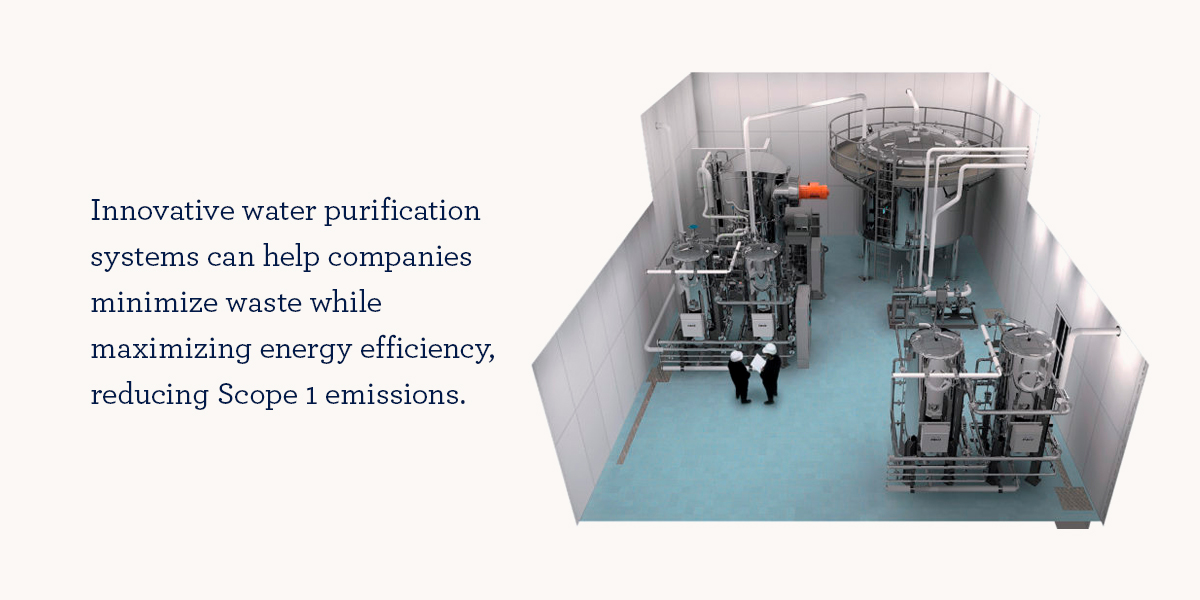
2. Sustainable Water Systems for Biopharma
Less than 1% of the Earth’s water is safe for human consumption, and water scarcity now affects one in 10 people worldwide. A more sustainable way to use and produce safe, pure water for biopharmaceutical applications is critical for improving a company’s environmental impact.
MECO has developed more sustainable, responsible technologies for water management. Our innovative water purification systems can help biopharma companies minimize waste while maximizing energy efficiency, reducing Scope 1 emissions.
Custom integrated MASTERfit system uses 20% less feedwater and pretreatment consumables while rejecting 65% less water to drain.
3. Energy Consumption
Cleaning equipment is a highly energy-intensive procedure due to stringent industry standards, which is why cleanroom infrastructure is often the largest contributor to overall energy usage in manufacturing facilities. Working to reduce time-in-plant through process intensification can decrease energy demands for both production and cleanroom processes.
Process intensification involves producing higher yields in less time using fewer consumables. Although some plants will experience technical challenges unique to their infrastructure, taking this approach is vital for the success of many sustainability initiatives in the industry.
Companies can begin cutting energy consumption by optimizing individual processes. Closed-loop water purification, for example, can help boost energy efficiency and reduce process waste.
MECO’s vapor compression distillation systems cut energy consumption by as much as 70% over conventional multiple-effect distillers. [NG1]
With help from MECO smartANALYTICS™, companies can be sure their systems operate at maximum efficiency. Our water analytics system monitors machine performance in real time, minimizing unplanned downtime and revealing new ways to reduce energy consumption.
Improving Sustainability in Biopharma’s Supply Chain
Much of the pharmaceutical industry’s environmental impact comes from its large, widely distributed supply chains. Focusing on reducing Scope 3 emissions and manufacturing waste can help the industry move closer to its goals.
Many companies have announced ambitious sustainability goals. For example, GSK is aiming to achieve a net zero climate impact by 2030. Likewise, AstraZeneca aims to keep all emissions within 1.5 degrees Celsius and become 100% carbon negative by 2030.
These goals are promising and manageable with the right frameworks in place. In fact, the biopharma industry has the influence to inspire change through the entire supply chain by focusing on reducing Scope 3 emissions.
Inter-Company Collaboration Is Key
Regardless of company size, there is only so much one company can do to effect large-scale change. To minimize Scope 3 emissions and reduce manufacturing waste, biopharmaceutical companies must go beyond demanding improvements from business partners to eliminating barriers to sustainable practices.
That goes for all companies working within the same supply chain. Companies need to become more deeply invested in every level of their supply chains. Joining programs such as Energize, which aims to address Scope 2 GHG emissions by opening access to renewable energy for pharmaceutical companies, can help organizations begin working toward more sustainable practices.
Addressing Scope 2 emissions is one way to start addressing Scope 3 emissions. Companies can also require partners to gain approval or meet standards from organizations, including:
- The Pharmaceutical Supply Chain Initiative.
- EcoVadis.
- The European Federation of Pharmaceutical Industries and Associations.
Looking for business partners that prioritize sustainability in their everyday operations can make organizations themselves more sustainable, as well. At MECO, we have over 95 years of experience engineering and manufacturing water purification solutions that are responsive to critical environmental priorities. Our sustainable technologies, such as the MECO ambient VC and MASTERpak™ ULTRA purification systems, maximize water for injection production and minimize waste while meeting or exceeding current standards for pharmacopeia. Contact us if you are ready to partner to improve your Water for Injection generation system.
